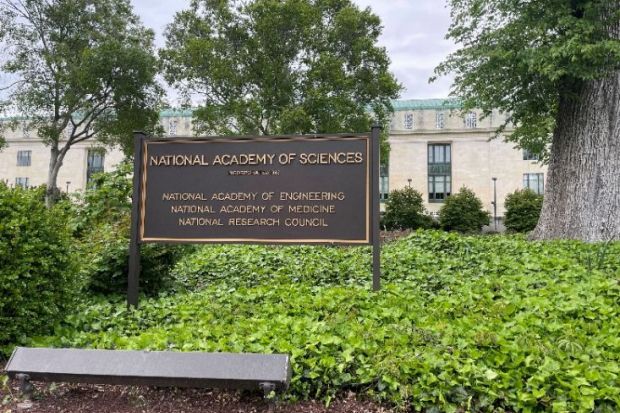The US National Academy of Sciences elected a new annual class that is almost half women, an equity milestone for the prestigious association of acknowledged university expertise.
The academy, founded in 1863, still counts women as slightly more than a fifth of its 2,461 members. It has seen steady gains on that measure, however, since the arrival in 2016 of its first female president, Marcia McNutt.
The academy’s 120 new members include 59 women, after two previous years of entering classes of nearly 40 per cent female. Barely more than a couple decades ago, the number of new women each year was in the single digits.
“I’m ecstatic,” said Susan Wessler, a professor of genetics at the University of California, Riverside who serves the academy as its home secretary, the position in charge of membership and elections. “We’ve been working hard to increase it.”
The academy relies on current members for nominations for elections for new members, and the increase in the number of women was a result of steady attention to adding more female scientists who in turn identify more qualified colleagues, Professor Wessler said.
Progress has been slower on racial equity, however. Black scientists account for only nine of the 120 new members, Professor Wessler said. And that number was still triple the previous best figure, after many years with none at all, she said.
“It still needs significant improvement, absolutely,” said Professor Wessler, who recalled her own election to the academy in 1998 as a time when only nine women were elected – in an entering class of just 60.
A key element of the needed change, for both gender and racial equity in the academy, Professor Wessler said, has been the job of convincing current members that their annual cap on new members was falling far behind the growth in the scientific workforce.
That led to the academy raising its limit from 60 a year at the turn of the century to 84 and then, just in the past few years, to 120, she said.
The academy does not allow “quotas” for race or gender, Professor Wessler said, although it has begun setting aside about 30 slots a year “for diversity purposes”. That means prioritising institutions and regions of the US that are under-represented, and banning members from nominating candidates from their own universities, she said.
The academy hopes that racial progress will accelerate as it begins to build a “critical mass in certain demographics” among its members, Professor Wessler said.
The academy also is taking new steps to make clear that those associated with sexual harassment are not welcome.
The academy voted in 2019 for allow the expulsion of members found to have violated behavioural norms in areas that include plagiarism, bullying and harassment. Then, after Professor McNutt urged anyone with knowledge of sexual harassment involving a member to formally file a complaint, the academy reportedly has begun moving against at least two members.
The cases involve Geoffrey Marcy, a former professor of astronomy at the University of California, Berkeley, and Francisco Ayala, a former professor of genetics at the University of California, Irvine, Science magazine reported.
A spokeswoman for the academy said she could not confirm or comment on the matter because the review process was confidential.
Register to continue
Why register?
- Registration is free and only takes a moment
- Once registered, you can read 3 articles a month
- Sign up for our newsletter
Subscribe
Or subscribe for unlimited access to:
- Unlimited access to news, views, insights & reviews
- Digital editions
- Digital access to THE’s university and college rankings analysis
Already registered or a current subscriber? Login








